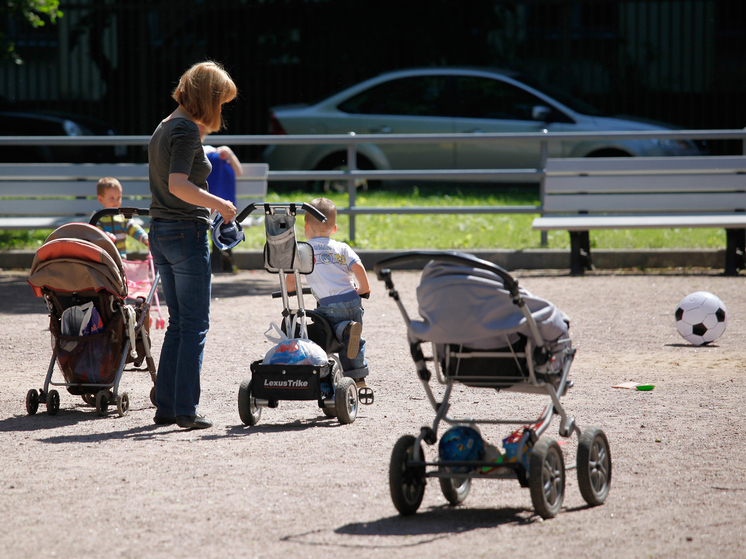Professor: “This money will not cover all the costs of families, but it can be considered quite worthy.”
Vladimir Putin signed a law on an annual family payment to working Russians with two or more children. The document will come into force on January 1, 2026. Thus, the state is strengthening measures aimed at improving the demographic situation in the country.
 < p>The document states that in order to receive such a payment, you must permanently reside in Russia, be a tax resident and not have any debts in this regard. Only those families whose average per capita income does not exceed 1.5 times the subsistence level established in the region of residence can count on payments.
< p>The document states that in order to receive such a payment, you must permanently reside in Russia, be a tax resident and not have any debts in this regard. Only those families whose average per capita income does not exceed 1.5 times the subsistence level established in the region of residence can count on payments.
We are talking not only about parents raising children, but also about adoptive parents, guardians and trustees with children under the age of 18, as well as with student children under 23.
It is noted that the law will come into force on January 1, 2026. However, an application for payments must be submitted to the territorial body of the Social Fund from June 1 to October 1 “of the year following the year in which personal income tax was calculated.” Payments will be transferred to the applicant's account opened in a Russian bank.
The amount of payment will be the difference between the full amount of income tax paid for the year and the amount of tax calculated on the same income at a rate of 6%. That is, at the end of the year, the family will be able to return the difference between 13% and 6% tax.
According to preliminary estimates, about 4 million families with more than 10 million children will be provided with such support.
Let's make rough calculations — what this, as they say, will result in for a family of four: dad, mom and two children.
The cost of living (LS) in 2024 is indexed by 7.5% and at the federal level it is 15,453 rubles. Since the law refers to 1.5 monthly income, the income for each family member should not exceed 23 thousand rubles. In our example, the total family income should be approximately 92 thousand rubles per month. A monthly income tax of 13% is taken from this amount — about 12 thousand per month.
As we have already said, in order to receive an annual payment, you need to pay personal income tax and not have debts. And cashback will return approximately half of the amount paid for the year. If a family has paid about 150 thousand rubles in taxes for the year, then on average about 75 thousand rubles will be transferred to their account.
Of course, this is not maternity capital (631 thousand rubles at the birth of the first child and 834 thousand for the second child), but the money is also significant.
We emphasize that these calculations are very approximate. If only for the reason that payments will begin in 2026. And from 2025, the cost of living will be indexed to inflation. And the amount of payments will be slightly larger than that obtained according to this year.
But it’s still obvious: for such an average poor family, this money is not at all superfluous. We can say that this is the 13th salary.
As you know, in his February message to the Federal Assembly, Vladimir Putin set the task of achieving a sustainable increase in the birth rate in Russia in the next 6 years. In recent years, the death rate in the country has exceeded the birth rate. Thus, according to Rosstat, in 2023 the number of births decreased by 3.2, to 1.26 million people. The number of deaths exceeded the number of births by almost 500 thousand people.
One of the most pressing problems in demography is low income in large families. If in general about 9% of the country's population is considered low-income, then, according to experts, in large families this figure is about 30%.
The government regularly introduces measures to support families with children. In particular, since the beginning of 2023, a single monthly allowance has been introduced for such families. Last year, about 11 million people received it.
— The law signed by the president will primarily support low-income families, — said Alexander Shcherbakov, professor of the Department of Labor and Social Policy at RANEPA, Doctor of Economics. — Of course, this is not the money that can fully cover the costs associated with raising children. But from the point of view of large families, such payments can be considered quite worthy. This is an important and quite effective support measure. And in general, all steps of the state that are related to helping large families should be welcomed. The country is currently experiencing a process of depopulation, which must be stopped immediately.


